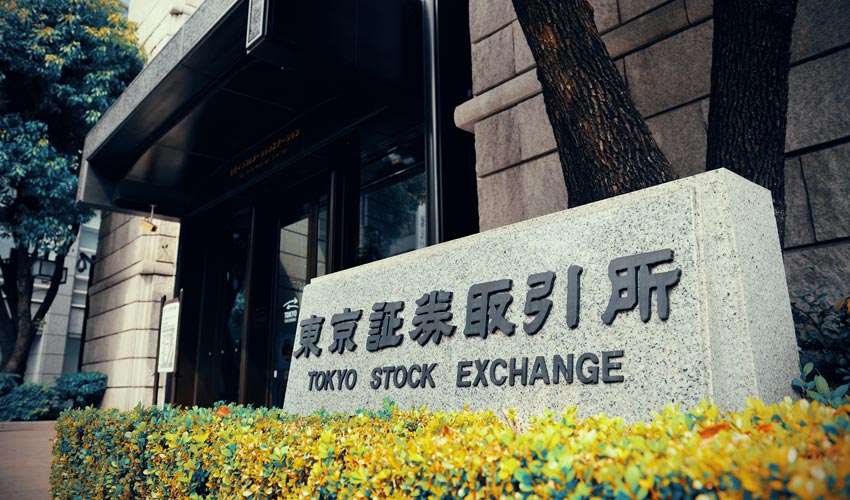Maruti Suzuki India’s Strategic Move, Catches The Auto Industry By Surprise
In what has caught the industry by surprise, a significant move, Maruti Suzuki India Ltd (MSIL) recently announced its decision to terminate the contract-manufacturing agreement with Suzuki Motor Gujarat (SMG) and acquire the latter from its parent company, Suzuki Motor Corporation (SMC). This strategic pivot marks a momentous shift in Maruti's approach, promising to reshape its operations and position within the Indian automotive sector.

On July 31, 2023, the board of directors at Maruti Suzuki India Ltd (MSIL) sanctioned the termination of their contract-manufacturing arrangement with Suzuki Motor Gujarat (SMG) and adopted a proposition to acquire SMG from its parent company, Suzuki Motor Corporation (SMC).
In the preceding week, the board concluded that the acquisition of SMG shares via the issuance of MSIL’s equity shares on a preferential basis to the Japanese parent company would be more advantageous for the company’s minority shareholders compared to a cash transaction.
After the board meeting, Maruti Suzuki’s chairman, RC Bhargava, remarked, “There is no company in the world, no single company under a single management which handles 4 million cars. And we have to reorganise Maruti to deal with the requirements of the management and the technologies which are to be brought over the next 10 years.”
Hence, while Maruti Suzuki announced its intention to double its annual production capacity to four million units by 2030-31 (with SMG contributing 750,000 units), this decision was unexpected by many, considering Maruti’s reversal of a choice made around nine years prior.
SMG’s capacity has been utilized to about 90%, manufacturing models like Baleno, Fronx, Dzire, and Swift in Gujarat.
In 2014, Maruti Suzuki disclosed plans for a subsidiary wholly owned by Suzuki Motor Corporation to manufacture cars for Maruti. Suzuki covered the initial capital expenditure of INR 3,000 crore, while Maruti Suzuki would bear the incremental capex cost above the vehicle production expense.
To accommodate investor resistance, Maruti had to adjust the financing plan, emphasizing that there would be no mark-up on cars sold by Suzuki to Maruti and that SMG’s cars would be purchased at cost price.
So, what has prompted this strategic about-face by Maruti?
Advantages of Maruti Suzuki’s Acquisition of Gujarat Plant:
- Simplified Organizational Structure: The acquisition streamlines Maruti’s holding structures, enhancing simplicity and agility, which is crucial in the complex automotive industry.
- Increased Control over Operations: With the Gujarat plant under its control, Maruti gains greater control over its India operations, transforming from a ‘trading company’ to a comprehensive manufacturing entity.
- Positive Impact on Share Price: Industry experts believe that the market will recognize Maruti’s increased manufacturing capacity and control, leading to a potential increase in the company’s share price.
- Enhanced Corporate Governance: By integrating assets into the listed company’s accounts, the acquisition reduces the negative impact of parent-owned entities on investor sentiment, promoting better corporate governance.
- Increment in Suzuki’s Stake: The share swap deal increases Suzuki’s stake in Maruti Suzuki India Limited (MSIL) from 56.48% to 58.28%, thus, reinforcing Suzuki’s commitment to MSIL and its global business.
- Capital Allocation Clarity: MSIL’s board is encouraged to enunciate a clear capital-allocation policy due to its accumulated cash reserves, guiding investors on utilising distributable cash.
- Operational Efficiency Improvement: Maruti’s acquisition of the plant is expected to enhance its operational efficiency, therefore, allowing faster decision-making and smoother introduction of new models and products.
- Faster Production Scaling: Having all operations under unified management allows Maruti to increase production as needed quickly, hence it can adap to market demands more effectively.
- Potential Battery Sales: Maruti can purchase surplus batteries from Suzuki, including those for electric vehicles, fostering collaboration and flexibility in their product offerings.
- Strategic Market Focus: The acquisition aligns with Maruti’s historical focus on building a strong marketing and sales network while simultaneously strengthening the organization and resources.
- Simplification of Manufacturing Ownership: Consolidating the manufacturing ownership within Maruti simplifies the company’s structure and decision-making processes.
- Adaptation to Changing Market Dynamics: The acquisition positions Maruti to better adapt to the evolving complexities of the automotive industry and changing customer preferences.
- Long-term Production Planning: Maruti gains the ability to plan and execute long-term production strategies more effectively, considering both existing and future models.
- Operational Flexibility: With complete ownership of the Gujarat plant, Maruti can better align production levels with market demands, avoiding overproduction or shortages.
- Strategic Growth Potential: The acquisition provides Maruti with a solid platform for future growth, enabling the company to explore new market segments and expand its product portfolio.
- Reduced Dependency: By reducing its dependency on external manufacturers, Maruti strengthens its self-reliance and ability to adapt swiftly to changing industry dynamics.
- Increased Manufacturing Capabilities: The acquisition equips Maruti with increased manufacturing capabilities, allowing for quicker response to market trends and customer preferences.
Hence, due to shifts in investor sentiment, Maruti Suzuki has chosen to simplify its corporate structure by integrating SMG’s assets into its publicly listed entity. Historically, parent-owned subsidiaries have had negative impacts on investor confidence. For instance, Maruti’s shares faced a brief downturn when the Gujarat facility was initially proposed.
Conversely, SMG will retain control over its existing lithium-ion battery plant, a joint venture with Toshiba Corp and Denso Corp, in addition to the upcoming electric vehicle (EV) battery plant slated for operationalization by 2026.
According to MSIL chairman Bhargava, Suzuki will not only purchase its own production but will also consider selling surplus batteries, including those for EVs, to other entities, including Maruti.
Ammar Master from GlobalData indicates that Maruti’s acquisition of the Gujarat plant will likely enhance operational efficiency, providing the company more control over new model introductions and production expansion.
But what motivates Suzuki’s side of the deal?
Suzuki’s Considerations and the Influence of Tokyo Stock Exchange.
The ‘interest’ factor Suzuki’s strategic decision to invest in India through SMG in 2014 was driven by its subsidiary’s robust growth amidst global struggles. Favorable global interest rates enabled Suzuki to allocate surplus cash to its Indian subsidiary, opting for a mutually beneficial arrangement.
However, the business landscape has since evolved, demanding investments in multiple technologies (hybrids, flex fuels, CNG, and EVs) based on evolving customer preferences. This shift and the desire for a leaner operating structure led to Maruti’s termination of the SMG arrangement.
Around nine years ago, Maruti’s management contended that utilizing Suzuki’s funds would optimize risk capital usage, considering SMC’s lower returns in Japan compared to Maruti’s performance in India.
Maruti’s substantial investment portfolio further strengthens this argument, as the company holds substantial cash and investments even after business expansions.
Maruti’s investment portfolio (mutual funds, cash, and bank balance) was worth INR8,750 crore as of March 2013, according to IiAS, which indicated it had enough funds on its books to invest in the Gujarat plant. The fact that Maruti has accumulated over INR49,000 crore in cash and investments as of March 2023 after investing in its business buttresses the point.
Globally, the need for electrification requires significant capital investments. SMC’s resources are necessary for product development of battery-operated electric vehicles.
In addition to these factors, there is a more substantial reason behind Suzuki’s decision—the influence of the Tokyo Stock Exchange.

Influence of Tokyo Stock Exchange and its Impact.
In January 2023, the Tokyo Stock Exchange mandated listed companies with shares trading below a price-to-book (P/B) ratio of 1 to either comply or explain the situation. This directive, which could lead to delisting, pressured Japanese companies to focus on improving their return ratios.
Suzuki Motors’ return on equity (RoE) improved from 9.0% to 11.2% between FY22 and FY23, aligning with this push for improved financial performance.
As Suzuki aims to improve its RoE and meet the Tokyo Stock Exchange’s requirements, the share-swap deal with Maruti facilitates consolidation of Maruti Suzuki’s net worth. Therefore, the deal is anticipated to enhance Suzuki’s shareholding in Maruti and subsequently lead to higher dividends and profit shares.
However, Maruti Suzuki’s investors might witness a 4.3% dilution in earning per share due to increased share capital and unchanged profits. Moreover, the deal may impact Maruti’s return on capital employed and return on net worth by 230 basis points and 260 basis points, respectively.
As the deal advances, further discussions will determine the value of the Gujarat plant. Despite the potential challenges, most industry experts view Maruti’s takeover of the facility as a well-timed strategic move.
In summary, Maruti’s decision to acquire Suzuki Motor Gujarat and consolidate operations signifies a strategic shift to address evolving industry demands and streamline its corporate structure. The move has both operational and financial implications for both Maruti and Suzuki, aligning with broader trends in the global automotive market and financial markets.
The Last Bit, Maruti Suzuki’s decision to acquire Suzuki Motor Gujarat and consolidate operations signifies more than a mere business maneuver. It exemplifies Maruti’s proactive response to an evolving industry landscape, demonstrating its commitment to adapting and thriving in the face of challenges.
As the automotive sector navigates new horizons of electrification, innovation, and efficiency, Maruti’s strategic shift speaks volumes about its determination to lead and transform, while maintaining its steadfast focus on delivering value to shareholders and customers alike.





